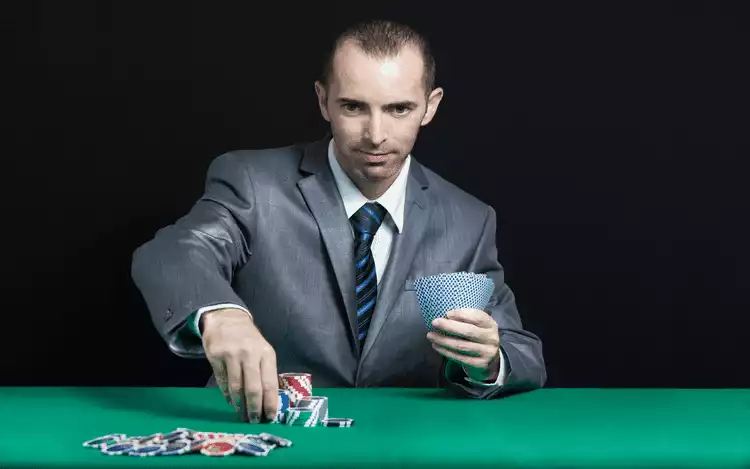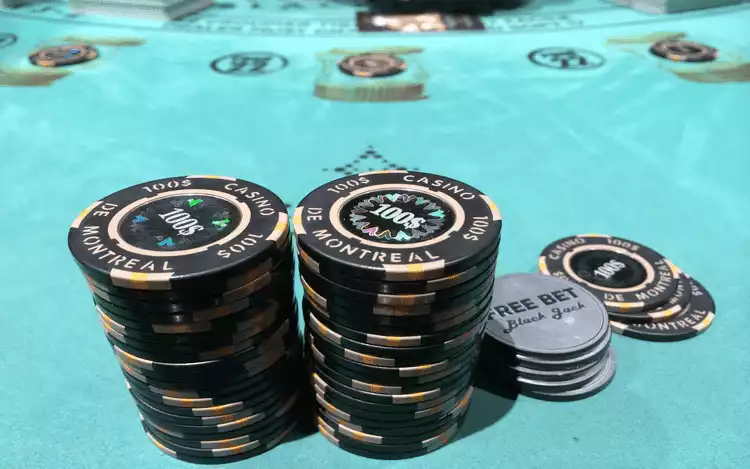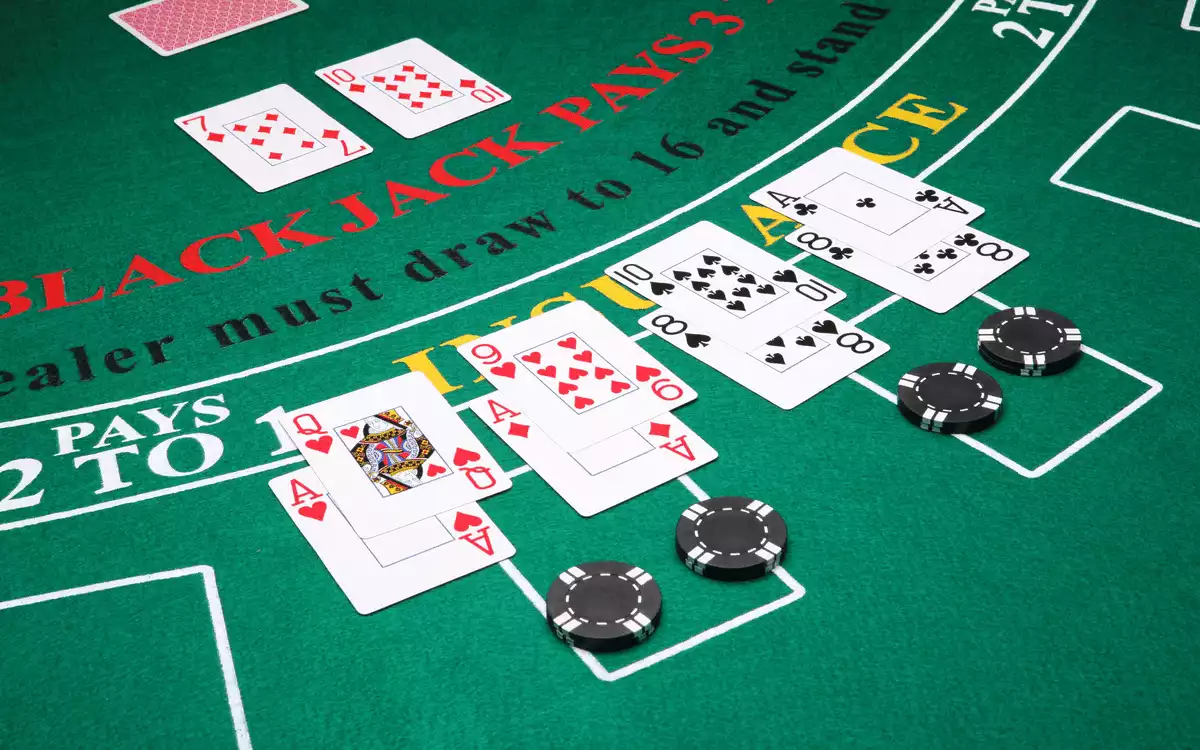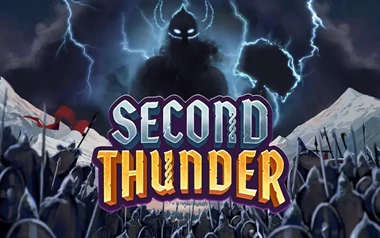If players wish to walk out of the casino with winnings, they should be acquainted with the many jargon terms and fundamental principles of blackjack. The words Hit, Stand, Surrender, Double Down, and Split are essential to the game since they suggest potential player actions. One of the most exciting Blackjack plays is Doubling Down, whether you are playing at an online casino or a real-world table. You can increase your wager mid-hand with this play to try for one additional card using the Double Down action. However, this wager should not be taken lightly, and there are moments when it is best to Double Down and others where doing so would be a fool's gambit. Therefore, in today’s guide, we will be explaining what it means to double down in blackjack, blackjack double-down rules, and when you should double down in blackjack and when it is best to hold off.
What is Doubling Down in Blackjack?
The ability to double down in blackjack refers to the possibility of increasing your initial wager by up to 100%. The player must stand in exchange after drawing one more card. Doubling down is a show of confidence in your hand, and in certain situations, using this blackjack method could improve your gaming outcome, but as with all betting techniques it needs to be used smartly and sparingly.
In real-world blackjack, every choice you want to make needs to be expressed with an appropriate hand signal. In this manner, your goals will be sufficiently evident to the dealer and surveillance. In shoe and hand-held blackjack, there are differences in the appropriate hand signal for double down.
In blackjack, whether played with one deck or two, players are dealt cards face-down. They have to toss them face-up in front of their chips and place a new stake equal to the initial bet in order to double down. Of course, in online blackjack, doubling down is achieved with the click of a button.
When to Double Down?
Playing the double-down wager is advisable in blackjack when three specific scenarios occur:
1. If the sum of your cards is 11
This is due to your excellent likelihood of hitting 21, and even in the event that you miss, you will probably receive a score that is quite near to that crucial figure with no chance of going bust (as the maximum card value is 10 meaning the highest number you can achieve is 21).
2. When you hold a soft 16, 17, or 18
A soft hand is a Blackjack hand that involves an ace as the value of the ace can change from 1 or 10 depending on the combination of cards presented. Usually, you should only double down in this situation if the dealer is displaying a lesser card.
Even with a soft 18, you might be tempted to hold on, but there is actually a good possibility you can improve your hand with only one card due to the fact that the 10 value of the ace will change to a 1 if its value of 10 would place your hand value over 21.
3. When you hold a hard 9 or 10
A hand is known as a hard hand when there is no ace present. This is because the numbers do not have the opportunity to change and are therefore set in stone. Doubling down with this hand should only be attempted if the dealer is displaying a low card. You will have a great hand versus the dealer if you obtain a reasonably high card and you do not have the potential to go bust, meaning that some risk has automatically been mitigated.
Over all though, please keep in mind that when you double down, things will not always go your way even if you are following the statistics. Even if the mathematics are on your side, they can only be used as an indicator of likely outcomes and not a guarantee due to the element of chance.

Playing Blackjack Game
When Not to Double Down?
When the dealer has an ace on the table, never double down. To put it plainly, there is just too much probability of them getting blackjack. There is also a very good likelihood that they will wind up with a total very near to 21 even if they check and find no blackjack.
When you show anything higher than an 11, you should never double down because the risk of going bust is too great as even at a 12, drawing a 10, Jack, Queen, or King will place you over 21. It is preferable to just hit or stick with a smaller total and wait for the dealer to bust.
Put simply always go with the safe route and leave your wager alone if you are not sure whether to double down. The double-down option should only be used very sparingly when one of the three scenarios that we have previously mentioned is met. If you are playing at a table with other players you will probably see the double-down option used a lot, but this is usually used by an overzealous and inexperienced player, and with a little more attention you will probably note how often their endeavours end in losses.
Blackjack Double Down Rule Variations
As we mentioned earlier, while the concept of doubling down is really simple, you will find different variations on the rule depending on where you play and being aware of these will help you avoid any rookie errors.
- Discard double: This option, which lets players give up after doubling down, is rarely available in casinos.
- Triple down: This variant permits you to double down on three cards. Blackjack tables do not often offer this rule.
- Double on Any Number of Cards: This option allows players to double down regardless of the number of cards in their hand.
- Hit after double down: Technically, there is no rule which allows hitting after double down, although unskilled dealers may let you do so.
- Redouble: This option lets players double down again on the card that is drawn following their initial double.
- Double Down Soft Count: Allows players to double down on any of the first two cards that contain an ace.
- Double Down Hard Count: Players may double down on any total other than an ace.

Blackjack Free Bet
Conclusion
While blackjack is at heart a game of chance, there are certain mathematical predictors that can be used to assess the likelihood of a winning or losing hand. While being knowledgeable of these odds can help you up to your blackjack game and avoid rookie errors, you always need to remember that in a game of chance, anything can happen, and always be cognisant of safe and responsible gambling practices.






